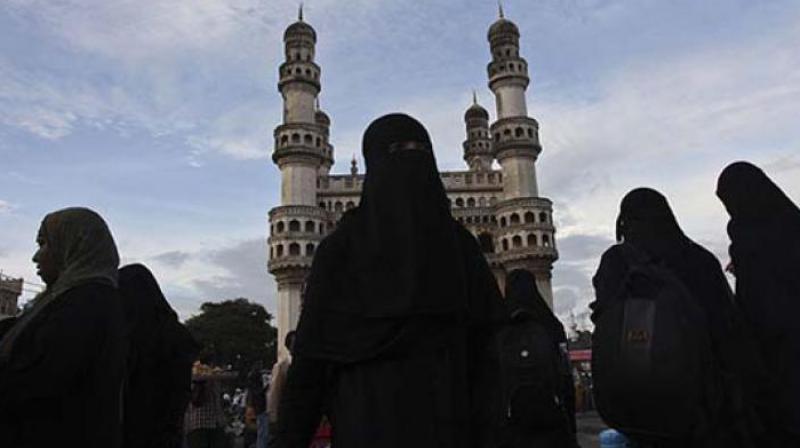Supreme Court Constitution bench to decide on Triple talaq

New Delhi: The Supreme Court on Thursday indicated that a five-judge Constitution bench will decide whether ‘triple talaq’ form of divorce is a fundamental right to the religion and a part of Muslim personal law which can be recognised as legally valid.
A three-judge Bench comprising Chief Justice J.S. Khehar and Justices N.V. Ramana and D.Y. Chandrachud had on February 14 said it would determine whether triple talaq violated basic human rights of Muslim women. The court had asked counsel for the parties to submit a list of issues to be determined.
During the resumed hearing on Thursday, the Centre informed the bench that the court should determine whether the practices of talaq, nikah halala and polygamy are protected under Article 25 (1) of the Constitution (right to freedom of religion); whether Article 25(1) is subjected to fundamental rights of the Constitution and in particular Article 14 (right to equality) and Article 21 (right to life) and whether personal “law” is protected under Article 13 of Constitution or not.
Article 13 says, “All laws in force in the territory of India immediately before the commencement of this Constitution, in so far as they are inconsistent with the provisions of this Part, shall, to the extent of such inconsistency, be void. The State shall not make any law which takes away or abridges the rights conferred by this Part and any law made in contravention of this clause shall, to the extent of the contravention, be void.”
The CJI told the counsels for various parties that another important facet of triple talaq is whether it is Islamic or un-Islamic. Or if it was a religious practice, whether to sustain it is, support of any law is needed.
The CJI made it clear that “we don’t want to rush through the hearing, we can’t scuttle all the points. We will give you further time to arrive at the issues. All the counsels give brief written submissions so that the court will get an idea of the points for determination.”
Secular nature of triple talaq under question
The Centre also said whether the controversial practices of talaq, nikah halala and polygamy are compatible with India’s obligations under Intern-ational treaties and conventions to which it is a signatory. The other issues under consideration are: Whether the practices of triple talaq are of a secular nature, namely marriage and divorce, and thus not protected under Article 25(1) although they may be considered as a part of religion? Whether this practices run counter to Constitutional Morality that guarantees equality before law and equal protection of laws? Whether instantaneous triple-talaq in one sitting (talaq-e-bidat) in the absence of witnesses and without any attempt at reconciliation and nikah-halala are legally permissible?

